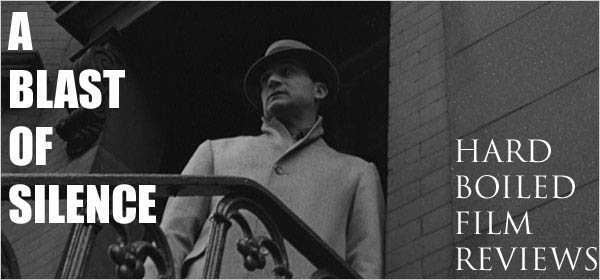In one of his best performances, Paul Muni plays James Allen, a man in the wrong place at the wrong time as he is arrested as an accomplice in a robbery. The film is based on the true events and subsequent book about Robert Elliott Burns and his experience on a chain gang in Georgia in the 1920s and his eventual escape and legal battle that followed.
Muni seems to be best remembered as starring in the original version of Scarface and his late 1930s films like The Life of Emile Zola, and I have no qualms with that. Only this film is an American classic, both for the quality of the film, the tenacity of the subject matter and the impact it actually had on the country.
LeRoy took a daring route with the film, going against the idea of choosing the common happy ending path a lot of films took in those days. Without spoiling anything for any prospective viewers, all I'll say is that the film is an up and down ride of failure and success, a rags to riches story if you've ever seen one.
At the soul of this brave multiple genre film is a rather dark and brooding world of pain and social changes. The film is part crime, part social commentary, part drama, part film noir and even part gangster. Even though James Allen is no gangster, the film was still released during the heyday of the genre, and the film certainly has feel of one.
Muni's portrayal of James Allen in this film is almost of the one man show variant. As I think back, his character seems to be the one steady constant throughout the whole film. It makes perfect sense actually as the man is always on the move and on the run. Muni gives this sense of life and character to Allen, and shows the man's anguish, suffering and complete transformations as the film progresses, turning this man into a likable character you want to cheer on.
At a short 93 minutes, the film doesn't get to detail a lot of the time Allen spent in the prison camps or on the run, only small segments as years pass by as a sledgehammer strongly bangs away calendar months. Understandable, of course, but one could only imagine the length the film truly could be if the entire story had been able to been told. For example, Allen's relationship with Marie Woods (Glenda Farrell) is a pivotal character relationship to the story, but feelings change so quickly due to the abrupt advancing of time. Nonetheless, these qualms are minor as the full effect can still be felt and understood.
Looking back, I still don't understand how this film didn't quite make its way into the upper echelon of 1930s cinema. It's up there, I know that, just not high enough. I'll always and forever consider this a breeding ground of American film due to its influential nature in both style and content. And I mean come on, that sweet, sweet film title!



No comments:
Post a Comment